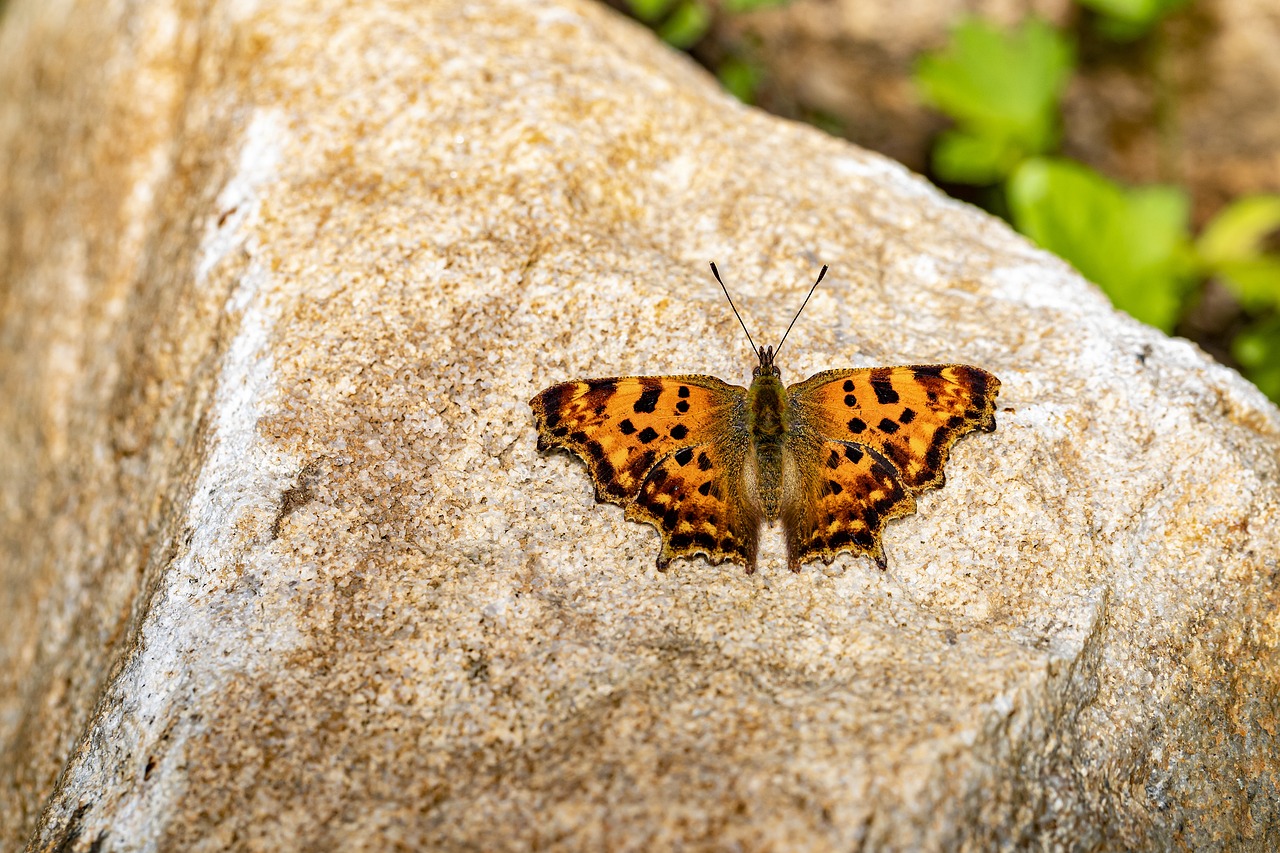The Comma butterfly (Polygonia c-album) is a striking species belonging to the Nymphalidae family. Here’s some information about this beautiful butterfly:
- Appearance: The Comma butterfly is named for the distinct white marking on the underside of its wings, resembling a comma punctuation mark. Its wingspan ranges from 45 to 60 millimeters. The upper side of the wings is orange-brown with dark markings, while the underside is mottled brown with a white “C” or comma-shaped mark, which gives the butterfly its common name.
- Habitat: Comma butterflies are found in a variety of habitats, including woodlands, hedgerows, gardens, and parks. They are particularly associated with areas where their larval host plants, such as nettles (Urtica spp.), are abundant.
- Range: This butterfly species is native to Europe, Asia, and parts of North Africa. It is widespread and can be found in suitable habitats across its range.
- Behavior: Comma butterflies are known for their distinctive flight pattern, which includes a series of glides interrupted by rapid wing beats. They are often seen basking in the sun with their wings open, displaying their beautiful coloration.
- Life Cycle: The Comma butterfly undergoes a complete metamorphosis, with four life stages: egg, larva (caterpillar), pupa (chrysalis), and adult. The caterpillars feed on nettles and other plants in the Urtica genus, while the adults primarily feed on nectar from a variety of flowering plants.
- Seasonality: Comma butterflies typically have two or three broods per year, with adults flying from spring to autumn. They overwinter as adults in sheltered locations such as woodpiles or buildings, emerging in the spring to mate and lay eggs.
- Conservation: While the Comma butterfly is not considered globally threatened, populations may be affected by habitat loss, pesticide use, and other factors. Conservation efforts aimed at preserving and restoring habitat, including the planting of native host plants, can benefit this species and other butterflies.
Overall, the Comma butterfly is a beautiful and charismatic species appreciated by butterfly enthusiasts and nature lovers for its distinctive appearance and behavior.
Visited 532 times, 38 visit(s) today
Views: 782
Subscribe to the newsletter:
